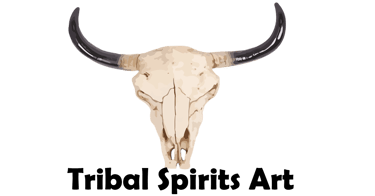🌿 Gluskabe and the Water Creature
An early legend from the Wabanaki Confederacy
4/5/20252 min read


🌿 Gluskabe and the Water Creature
An early legend from the Wabanaki Confederacy, specifically the Penobscot Nation, whose ancestral homelands span what is now Maine and the Canadian Maritimes. This confederacy also includes the Passamaquoddy, Maliseet, Mi'kmaq, and Abenaki peoples.
This is a story of Gluskabe (also spelled Glooscap or Kloskabe), a powerful cultural hero and teacher who shaped the land and guided the people in how to live in balance with it. He is not a god, but rather a being created by the Great Spirit, sent to teach the Wabanaki how to live respectfully on the earth.
🌿 Gluskabe and the Water Creature
Long ago, in the time before time as we know it, the rivers ran low and the land grew dry. The people and animals were suffering. No rain had fallen for many seasons, and though the clouds floated above, they gave no gift of water.
Gluskabe, the Great Teacher, walked the land. He saw the cracked earth, the thirsty trees, the people with dry mouths, and he knew something was wrong with the way the water flowed.
He journeyed across the mountains and through the pine forests, asking the birds and animals, “Where has the water gone?” None could answer—until a small turtle whispered, “The water creature has taken too much.”
This creature, a great greedy beaver-like spirit, had built a mighty dam across the mother river. It hoarded the water for itself, building lakes for its own comfort, while the rest of the land dried up.
Gluskabe made his way to the dam. He stood tall before the creature and said, “You are holding what was meant for all. This is not the way of balance.”
But the creature laughed, “I found it. I claimed it. Let the others suffer.”
Gluskabe did not fight with fists. Instead, he used wisdom. He called upon the wind, who was his uncle, and asked him to blow strong and fierce. The winds came, and the dam cracked. Gluskabe then struck the dam with his staff, and the water rushed forth—spilling down the mountains, across the valleys, into dry riverbeds and thirsty lakes.
The people rejoiced, and the trees lifted their leaves in gratitude. The animals drank and sang.
Then Gluskabe turned to the creature, now stranded and small without its dam. He did not destroy it, but spoke: “You may keep a pond. You may live in peace. But you must never take what belongs to all.”
From that day on, the rivers flowed free, the lakes filled, and the people learned a truth: the water is not ours to own—it is a gift to be shared.
And so, the Penobscot people, like others in the Wabanaki Confederacy, remember this lesson. They give thanks to the rivers. They walk gently on the land. They teach their children that to live with the land is to live in respect and balance—not dominion.
🌲 Cultural Note:
Gluskabe appears in many stories across the Wabanaki Nations. He is not worshipped, but remembered with deep respect as a figure who models humility, balance, and teachings about the natural world. This story reflects Indigenous environmental philosophy—that humans are part of the land, not above it.
#WabanakiLegends #PenobscotStories #IndigenousWisdom #RespectTheLand #NativeAmericanMyths #OralTradition #Gluskabe #SacredWaters #FirstNationsVoices #landislife
y post content
Copyright 2025 Tribal Spirits Art


